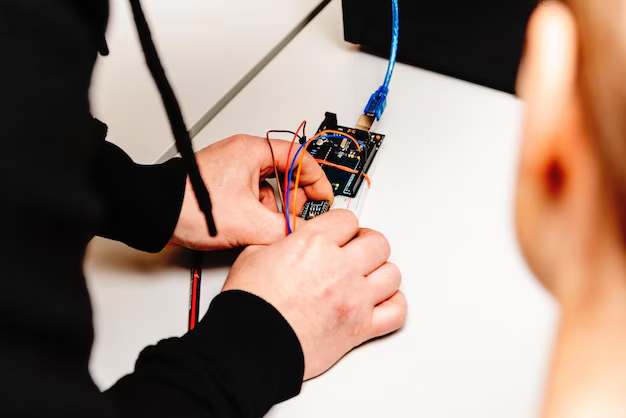Embarking on a Bright Career: How Long Does Electrician Trade School Take?
If you're thinking about a spark-filled career as an electrician, you're probably wondering, how long is electrician trade school? With the demand for skilled tradespeople continually rising, now is an excellent time to consider this profession. Whether you're fresh out of high school or looking to switch careers, understanding the journey and resources available can guide you toward a fulfilling career path.
The Pathway to Becoming an Electrician
There are a few different routes you can take to become a licensed electrician. The time it takes to complete each depends on the educational path and how quickly you accumulate hands-on experience. Typically, electrician trade school programs range from 9 months to 2 years, depending on whether you're pursuing a certificate, diploma, or associate's degree.
Training Programs
Certificate Programs (9 months - 1 year): These are designed for those looking to enter the workforce quickly. You'll gain foundational knowledge in electrical systems, safety protocols, and equipment handling.
Diploma Programs (1 - 2 years): More comprehensive than certificate programs, they often include additional coursework that can set you apart in the job market.
Associate’s Degree (2 years): Apart from covering basic electrician training, these programs include general education courses and can sometimes offer specializations.
Apprenticeships
Upon completing a training program, aspiring electricians typically enter an apprenticeship. This opportunity for hands-on experience is crucial, lasting between 3 to 5 years. During this time, apprentices work under the supervision of seasoned electricians while continuing to take classroom instruction. Upon completion, they can take the licensing exam to become a journeyman.
Beyond the Timeline: Financial Considerations
Investing in your education can be financially demanding, but numerous financial assistance options are available to lighten the load. Here are several paths to consider:
Government Aid Programs
Federal Pell Grants offer need-based grants to low-income students, reducing the financial burden of higher education. Be sure to fill out the FAFSA (Free Application for Federal Student Aid) to determine your eligibility.
Scholarships and Educational Grants
Look for local scholarships offered by trade organizations or community foundations. These are often dedicated to those entering specific trades, including electricians.
Student Loans and Debt Relief
Federal student loans are an option if grants and scholarships don't cover all your expenses. Once your career is established, explore debt relief options, such as income-driven repayment plans.
Credit Solutions
For short-term expenses, responsibly using a credit card with a low-interest rate can help manage costs. However, this should be approached with caution to avoid accumulating high-interest debt.
Bright Futures in Electrical Careers
The career outlook for electricians is shining bright, with the Bureau of Labor Statistics predicting a 7% growth through the coming decade. Whether it’s in construction, maintenance, or renewable energy sectors, the skills you gain in trade school can unlock multiple career paths.
By leveraging financial resources and focusing on your training, you can quickly move from student to professional. Take charge of your future by evaluating these educational opportunities and financial tools:
- 🎓 Federal Pell Grants: Need-based financial aid for eligible students.
- 💡 Trade Scholarships: Scholarships specific to the trade industry.
- 🏦 Income-Driven Repayment Plans: Tailor your student loan repayment according to income.
- 💳 Low-Interest Credit Cards: Manage educational costs responsibly.
- 🔧 Apprenticeship Programs: Hands-on learning with experienced professionals.
With the right approach, you’ll be on your way to illuminating success.

